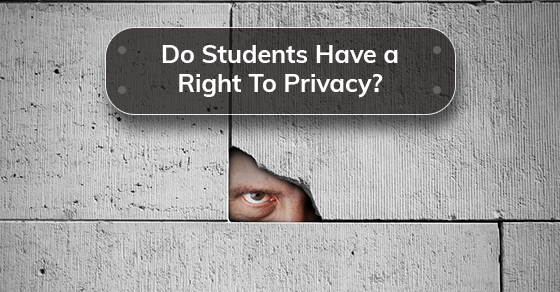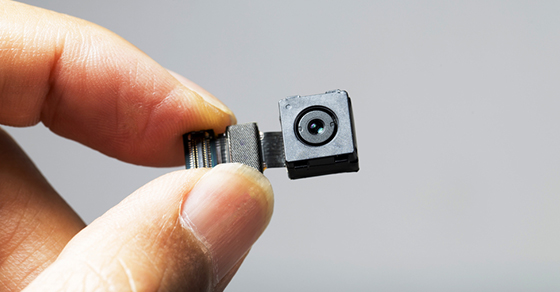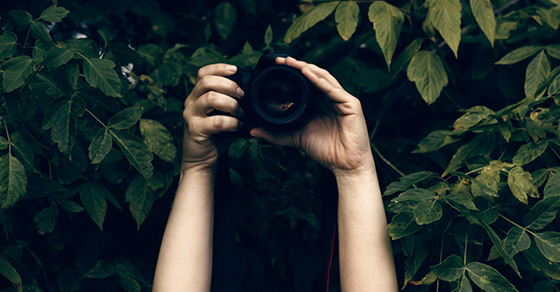Do Students Have a Right To Privacy?

Can a teacher film his students? That depends. Are the students aware of it? Did they consent? What exactly is the teacher filming? For what purpose?
Can a high school teacher secretly film the breasts of female students without their knowledge? That should be pretty obvious, a matter of common sense. You don’t have to be a parent or a teacher to know that this is not only wildly inappropriate, but illegal as well. Right?
Not so fast.
In London, Ontario, a teacher named Ryan Jarvis did exactly that. He used a camera concealed inside a pen to make video recordings of female students going about their day at the high school where Jarvis was a teacher. The recordings focused on their faces, bodies- and their chests. He was charged with voyeurism.

What is voyeurism? Someone who spies on someone’s private parts or intimate behaviour is engaged in voyeurism; what used to be called a “peeping Tom”. In 2005, the Criminal Code made that a criminal offence called “voyeurism”.
Voyeurism is the secret observation or recording, for a sexual purpose, of someone in “circumstances that give rise to a reasonable expectation of privacy”.
What is the punishment for voyeurism? It is a serious offence, which can result in a sentence of up to five years in the penitentiary, and listing on the Sex Offender Registry.
So what happened to the teacher, Ryan Jarvis? Contrary to the expectations that most people would have, Jarvis was found to be not guilty of voyeurism, not once, but twice- and for different reasons. The trial judge said that the Crown had not proven that the recordings were for a sexual purpose. The Crown appealed that decision to the Court of Appeal for Ontario, where a panel of three judges also found Jarvis not guilty, but for a different reason- the students had no “reasonable expectation of privacy” while at school.
What did the Supreme Court of Canada do? Eventually, the Supreme Court of Canada weighed in and overturned those earlier rulings, finding Jarvis guilty of voyeurism. In a unanimous decision by all nine judges of the Court, the Supreme Court found that not only were the recordings made for a sexual purpose but that students can reasonably expect that their teachers will not be secretly recording their bodies for their private enjoyment.
Is a unanimous decision by the Supreme Court significant? Yes, it is. It means that the Court is going out of its way to make it crystal clear that this conduct was illegal. A unanimous decision is one where the Court is saying, in effect, that this is not an area subject to debate, that all of the vast experience, knowledge and wisdom of the highest court in the land has arrived at the same conclusion. The Jarvis decision is a ringing endorsement of basic values in Canada, involving the protection of students engaged in learning, providing them with a safe space to be children and to go about their lives free from the depredations of others.
What is a reasonable expectation of privacy? This is a legal concept, but it is based on common sense and ordinary human experience. As the Supreme Court of Canada reminded us in the Jarvis case, a reasonable expectation in that case existed because the circumstances were such that “a person would reasonably expect not to be subject to the type of observation or recording that in fact occurred”. In other cases, whether a reasonable expectation exists will depend on the context in which secret observation or recording occurs.
What are the factors that go into determining a reasonable expectation of privacy? The Supreme Court listed several factors to be considered:
-
The location where the observation or recording took place: here, while the recordings took place in public areas of the school, not intensively private areas like a bedroom or bathroom, students had the right to a safe and secure learning environment free from this kind of activity.
-
Was it just observation or was it recorded? A recording, which can be watched more than once, or distributed to others, is more intrusive than simple observation.
-
Was the subject of the observation or recording aware of it? Secret observation will tend to violate privacy more than one where the subject is aware of it.
-
Did the subject consent? If the subject is aware and consents, it would be hard to find a privacy violation.
-
Was the observation “fleeting or sustained”? Was it enhanced by technology? A recording, enhanced by technology is more artificial, and capable of more manipulation than an observation, such as distribution or re-watching.
-
What was the focus of the observation or recording? In many of the recordings, the teacher was taping the chests and cleavage of his female students, in some instances while standing above them while they sat at their desks.
-
Were there any rules against the observation or recording? The recordings that Jarvis was making were in direct violation of school policy.
-
What was the relationship between the subject, and the person observing/recording? Here, the relationship was one of trust, that teachers will not abuse their position of trust and as authority figures to exploit their students for their own gratification.
-
Characteristics of the subject– here, the students recorded by Jarvis were all young people, most under the age of 18.
In outlining the list of factors, the Court gave a couple of examples of situations where observation or recordings would be legal- such as where a doctor views a patient’s private areas for a medical purpose; or illegal- such a video camera installed in a public washroom stall, which would always be illegal. The Court also provided some interesting examples where observation in one context might become illegal when the circumstances change. For example:
-
A woman in a change room at a public pool can expect that others would see her naked- but not by people outside the change room;
- A sunbather in a public park can expect to be seen by others, or even to end up in the background to photos taken by others, but would expect not to be leered at through a telephoto lens;
-
A commuter expects not to have someone taking photos up her skirt or zooming in on her breast while feeding her baby;
-
A student in a school where security cameras are operating does not give up the right to be free from intimate secret recordings like the ones Jarvis was making.
What does the Jarvis case say about our society today? The Supreme Court has resoundingly affirmed what most Canadians would consider to be obvious: that students in their school have a right to be free from secret recordings of their bodies by their teachers. That expectation of privacy, which should be a matter of common sense (but wasn’t), can extend to other situations as well:
-
What if the recordings had been made by a student instead of a teacher?
-
What if the teacher had been watching with his eyes instead of recording with a hidden camera?
-
What if was consensually exposing herself to her boyfriend next to her locker, and the image was unintentionally captured by a yearbook photographer taking casual photos?
The answer in those examples might not be so obvious. But the Supreme Court has now given us more legal clarity on where to draw the line.


